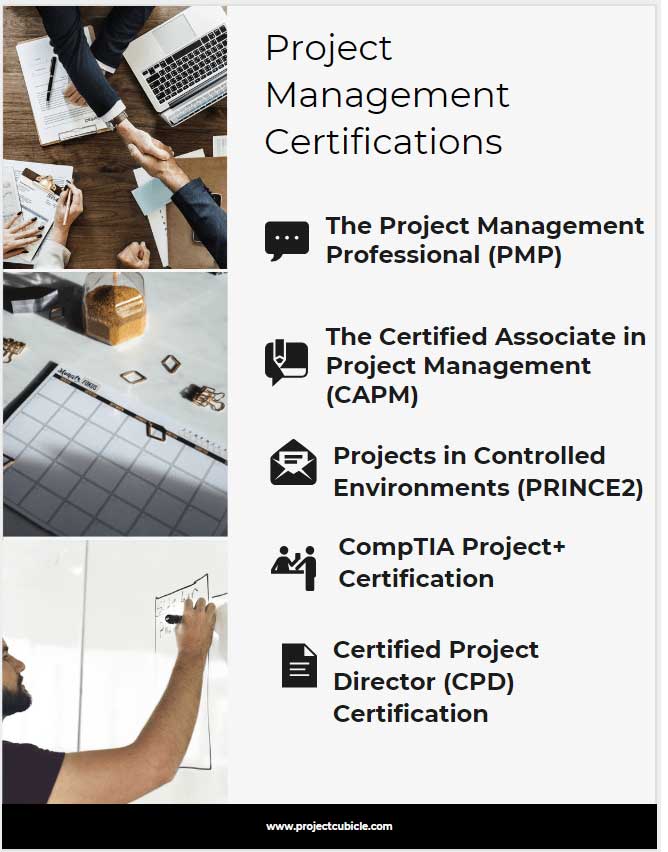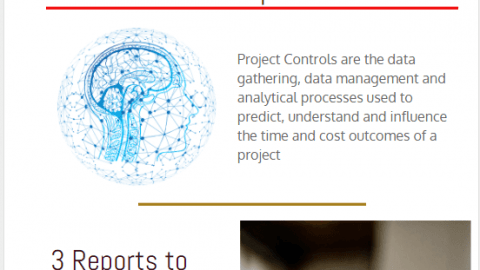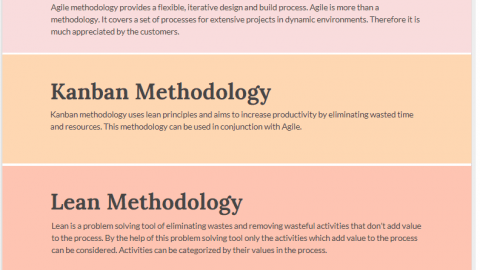Project Management Certification Programs
Professionals across all industries attend many courses, online project management certification programs, webinars, and training programs to improve their knowledge and have better job opportunities. Many experts have interests in various project manager certification programs and try to find out which of them suits their business best. In this short guide, we will analyze each project management certification type to give you a brief overview.
Table of Contents
Why Do You Need a Certification?
A project management certification tests your knowledge, competence, and experience as a professional. However, getting certified does not mean that you are a good and efficient project manager. In other words, you learn the basic project management processes but this knowledge is not directly applicable to your day-to-day job. You need also project experience and essential skills to become a good project manager.
That’s why many professionals don’t have a lot of love for project certification. Some project managers think that it is just a waste of time.
However, that is not true. Getting a project management certification helps professionals excel as an employee. If you want to hold a project manager position at a company, getting certified will contribute to your success.
According to the researches, companies prefer certified professionals rather than their noncertified counterparts for significant projects.
According to the PMI’s Project Management Job Growth and Talent Gap Report, certified project managers earn more than their non-certified counterparts.
Perhaps the most important benefit of getting certified is that certification programs provide a common language among professionals in the field of project management.
A certification itself does not make you a good project manager but it furnishes you with knowledge of the processes, practices, and frameworks.
Types of Project Management Certifications
Now we will give the details for some of the best programs currently available.
The Project Management Professional (PMP) Certification
The Project Management Professional Certification (PMP) is one of the most common project management certifications around the world. More than 850,000 professionals are currently certified. It is a globally acknowledged credential offered by the PMI. The exam is based on the PMI’s PMBOK Guide. The PMBOK Guide emphasizes five project management process groups and ten knowledge areas.
Requirements:
Bachelor’s degree or global equivalent
- Four-year degree (Bachelor’s degree or global equivalent)
- Minimum of three years of project management experience (36 months professional project management experience)
- 4,500 hours leading or directing projects
- 35 contact hours of project management education (formal education)
- You must earn 60 (PDUs) every three years to maintain the certification
- Pass the Exam
or
High school diploma, associate’s degree, or global equivalent
- Minimum of five years of project management experience (60 months professional project management experience)
- 7,500 hours leading or directing projects
- 35 contact hours of project management education (formal education)
- You must earn 60 (PDUs) every three years to maintain the certification
- Pass the Exam
The Certified Associate in Project Management (CAPM) Certification
The Certified Associate in Project Management (CAPM) is an entry-level project management certification offered by the PMI. It recognizes the professional’s understanding of the fundamental knowledge, terminology, and processes in the field of project management.
Requirements:
The CAPM has fewer requirements than PMP
- High school diploma, an associate’s degree or equivalent, and 1,500 hours of project management experience
- Pass the Exam
or
- High school diploma, an associate’s degree or equivalent, and 23 contact hours of project management education (formal education)
- Pass the Exam
In both cases, you must retake the exam every five years to maintain the certification.
Projects in Controlled Environments (PRINCE2)
PRINCE2 is a project management method that provides frameworks to divide projects into manageable and controllable stages. It is based on seven principles that keep the project aligned with the PRINCE2 methodology.
The PRINCE2 Foundation is an entry-level certification that tests your basic knowledge in the field of project management.
PRINCE2 Practitioner is an advanced level certification that tests your sufficient knowledge and understanding of project management.
Requirements
PRINCE2 Foundation
- A foundation course is required for the PRINCE2 Foundation.
- Pass the Exam
PRINCE2 Practitioner
- Requires a PRINCE2 Foundation, PMP, CAPM or an IPMA certification
- You must retake the exam every three years to maintain the certification or you can maintain your certificate through membership.
- Pass the Exam
CompTIA Project+ Certification
The CompTIA Project+ is an entry-level certification that involves essential concepts beyond the scope of just one methodology or framework for project management. It is a beginner-level project management credential applicable to small and medium-sized projects. At least one year of project management experience is recommended to get certified.
Requirements:
- Pass the Exam
Associate in Project Management (APM)
The Associate in Project Management, administrated by the Global Association for Quality Management is an entry-level project management certification program.
Requirements:
- Take the e-course (there are no education or experience requirements, just read the GAQM body of knowledge and take the e-course)
Certified Project Director (CPD) Certification
The Certified Project Director, administrated by the Global Association for Quality Management is a high-level project management credential. It is designed for senior project managers who are working on multiple or complex projects. It is a great credential for project managers who perform project portfolio management.
Requirements:
- Take the e-course (Study the GAQM body of knowledge)
- Four-year degree (or Post-graduate / Master’s university degree or above, or globally equivalent)
- Must pass the PMP, PRINCE2 Practitioner, or CAPM.
- You must retake the exam every five years to maintain the certification or complete the E-Course.
Summary
In this article, we analyzed the most common types of project management certification programs. Beyond these many colleges and universities offer various certification programs to professionals. No matter what your position or education level is, you can choose one of them that suits your business and attend training programs to take your career forward.
See Also
Program Management Professional

Keith Brandon is a senior director of Keboth Training and Education Co. In addition to leading Keboth’s global team, he developed Keboth’s online training system that offers advanced learning solutions for professionals.










